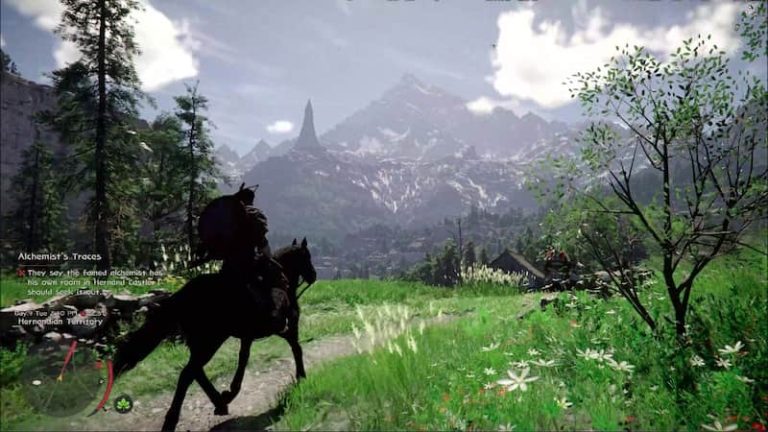Next-Gen Nostalgia: Why Classic Games Are Dominating Modern Consoles

Gaming is changing. For many traditionalists, it feels like the medium is undergoing a facelift that doesn’t always sit well.
The generation that grew up with the early 2000s console icons is watching as their world evolves into something almost unrecognizable. Cross-platform play has erased the old divides. You no longer have to choose between Xbox and PlayStation. But in its quest for accessibility, some games now feel like parodies of themselves.
Celebrity skins, cartoon crossovers, and over-the-top cosmetic gimmicks compete for attention alongside the gameplay itself. In an average game of Fortnite, you might be shooting Peter Griffin dressed as Homer Simpson, then driving off in Homer’s pink sedan while Travis Scott blares from the radio, all instead of focusing on building.
Then came Battlefield 6‘s reveal trailer, and for a moment, it felt like someone in the industry remembered what we’d lost.
The trailer didn’t pander. It didn’t wink at the camera or lean into self-aware humor. It went quiet. Where Call of Duty has devolved into arcade chaos punctuated by celebrity cameos and increasingly absurd cosmetics, Battlefield 6 called back to the good old days of boots on ground shooting, after a squad of celebrity guest stars are blown to smithereens.
The changes in Call of Duty and Fortnite grab the attention of younger players who want fast, flashy action and constant rewards.
Short matches, crazy crossovers, and endless cosmetic options fit the scroll-and-swipe habits of today’s gamers. For older players who grew up on tight, skill-based shooters, it can feel exhausting.
The careful pacing, tension, and strategy that made those games exciting are often lost under the chaos and spectacle, leaving veterans wishing for the days when gameplay mattered more than the flash.
Will It Ever Be The Same?
This is why remasters have surged in popularity. Players are returning to worlds they know and love, where gameplay still matters. The GTA franchise offers a cautionary tale. GTA VI has been delayed again, from May 2026 to November.
In the 13 years since GTA V’s original release, the industry has shifted. Rockstar has leaned heavily on nostalgia, remastering GTA V across three console generations and re-releasing classics like GTA III, Vice City, and San Andreas through season passes.
These titles tap into short-term nostalgia, but the thrill of buying guns or playing blackjack or other games on trusted US sweepstakes casino sites, modding cars, or exploring familiar cities can only go so far when you have replayed the stories of Claude, Tommy and CJ multiple times. Even with updated graphics and improved mechanics, the worlds feel familiar, and the excitement of discovery is replaced by routine.
Gaming’s Character Crisis
Modern gaming has a character problem, and nobody wants to acknowledge it. Classic games are thriving because they offer clarity.
This isn’t simply the return of old games. It’s the industry strategy. Some publishers, like Ubisoft, have found success with annual franchises, feeding a steady appetite for the familiar. But there’s a catch.
Players enjoy fresh settings, but ask someone to name a favorite character from the last five Assassin’s Creed games and you’ll get a pause. These characters are tools for gameplay, not icons.
Social media makes it worse. Today’s gamers compete with TikTok, Instagram, and endless dopamine hits. Why spend 30 hours learning a new protagonist when Fortnite lets you swap skins instantly? Why commit to one identity when you can cycle through Marvel heroes, anime characters, or musicians with a button press?
This creates a loop. Developers design shallower characters. Players cling to familiar faces. Sackboy, Nathan Drake, and Master Chief remain essential because new icons haven’t emerged. These legends persist not because they are timeless, but because we don’t know how to replace them.
God of War soldiers on, retrofitting Kratos into Norse mythology because Greek gods weren’t enough to retire him.
Saints Row attempted a full reboot with new characters and a different tone, but it was critically panned and commercially failed.
Mafia is reinventing itself with The Old Country, returning to the series’ roots after modern installments struggled to find their identity. Early reviews have been positive, largely because it’s playing in familiar territory with updated technology.
For traditionalists, those of us who grew up believing gaming should push forward, this is heartbreaking.
It’s tough to watch the medium fold in on itself, leaning on the past because it has lost the confidence to imagine what comes next.
A Complicated Future
The uncomfortable truth is that this won’t change. Not soon, maybe not ever. The future of gaming is complicated. Studios stick to familiar characters and worlds because it’s safe and profitable, but we can take comfort in seeing them look better than ever.
Remasters and callbacks, even when cynical, serve a purpose. They reintroduce classic design principles that modern gaming often abandoned. Tight mechanics. Clear objectives. Worlds that feel lived-in instead of endlessly procedural. These fundamentals still matter.
Battlefield 6 did not need cartoon chaos to excite players. Rockstar does not need to reinvent GTA every few years. Mafia succeeded by returning to its roots. These games endure because challenge, immersion, and tight design are not relics. They are foundations.
Gaming is changing, and our generation sometimes struggles to recognize it. But the classics coming back are not just nostalgia. They show that the fundamentals we fell in love with still work. They are benchmarks and reminders that even in 2025, good design matters more than spectacle.
The question is not whether gaming will keep looking back. It is whether we can learn from it before it is too late.




